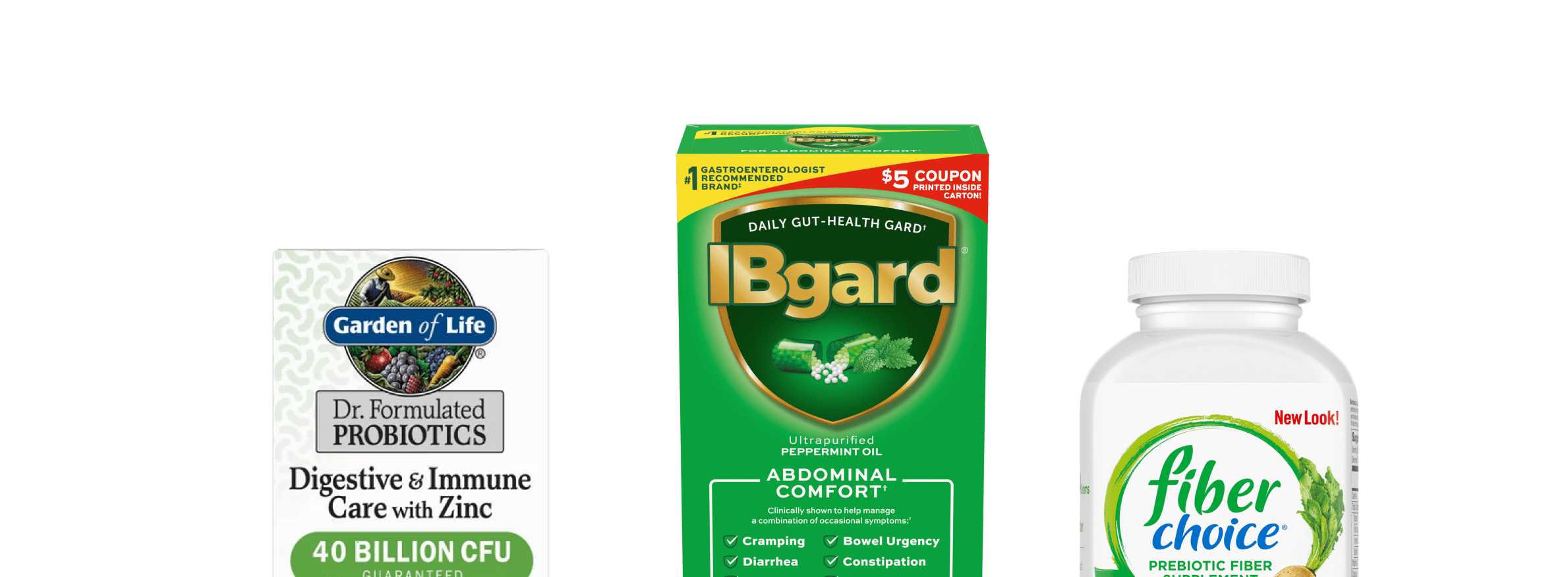Best Gut Health Supplement Choices for Enhanced Nutrient Absorption
Discover the Trick to Food Digestion and Immunity With Digestive Tract Health And Wellness Support

Recognizing Intestine Health And Wellness
Recognizing digestive tract health and wellness is crucial for overall health, as it plays a substantial role in food digestion, immunity, and also psychological health and wellness. The gut, comprising the gastrointestinal tract, is accountable for breaking down food, taking in nutrients, and getting rid of waste. A well balanced intestine environment guarantees efficient food digestion, enabling the body to make use of nutrients successfully.
Moreover, gut wellness significantly impacts the immune system. The digestive tract houses a substantial section of the body's immune cells, and a healthy intestine can assist fend off pathogens and lower inflammation. Disruptions in digestive tract health and wellness can result in an over active immune action, potentially adding to autoimmune conditions and allergies.
In addition, the digestive tract is typically described as the "2nd mind" due to the gut-brain axis, a complicated interaction network linking the digestive tract and the brain. This connection influences mood, cognition, and emotional wellness. Concerns such as dysbiosis, defined by an imbalance in gut bacteria, have been connected with psychological wellness conditions, including anxiousness and anxiety.
The Digestive Tract Microbiome Explained

The digestive tract microbiome, a varied neighborhood of bacteria living in the gastrointestinal system, plays a pivotal role in preserving gastrointestinal health and total health. Comprising trillions of microorganisms, infections, fungis, and other microbes, this complicated ecosystem help in the food digestion of food, the synthesis of essential nutrients, and the guideline of metabolic processes.
Each person's gut microbiome is one-of-a-kind, affected by variables such as diet plan, way of life, genetics, and environmental exposures. A balanced microbiome sustains optimum food digestion by breaking down complex carbohydrates, generating short-chain fatty acids, and promoting the absorption of nutrients. Conversely, an inequality, usually referred to as dysbiosis, can result in gastrointestinal conditions, including short-tempered bowel disorder (IBS) and inflammatory digestive tract illness (IBD)
Research study has actually shown that a diverse microbiome is related to far better health outcomes, emphasizing the importance of dietary selections in nurturing these microbes. Foods abundant in fiber, probiotics, and prebiotics, such as fruits, vegetables, and fermented products, can promote a healthy and balanced microbiome. Recognizing the intestine microbiome is crucial for creating targeted interventions focused on enhancing digestive health and wellness and protecting against intestinal diseases.

Connection Between Digestion and Resistance
A robust link exists in between food digestion and resistance, highlighting the critical duty of the intestine in keeping total health and wellness. The stomach system is home to trillions of microorganisms that form the digestive tract microbiome, which substantially affects both digestive procedures and immune responses. This complex ecosystem aids in damaging down food, taking in nutrients, and supplying essential metabolites that support immune feature.
When digestion is effective, the gut obstacle remains undamaged, preventing damaging pathogens from entering the blood stream (gut health supplement). On the other hand, inadequate digestion can cause an inequality in the microbiome, leading to dysbiosis, which has been linked to various wellness problems, including inflammatory conditions and autoimmune conditions. In addition, roughly 70% of the body immune system resides in the gut-associated lymphoid tissue (GALT), which connects these details closely with the gut microbiome. This interplay guarantees that the body immune system can properly identify in between hazardous and valuable substances.
Tips for Sustaining Digestive Tract Wellness
Supporting gut health is important for preserving both gastrointestinal efficiency and a well-functioning immune system. To foster optimum intestine health and wellness, think about including several practical methods into your daily regimen.
First, focus on hydration. Drinking ample water sustains digestion and aids maintain the mucosal cellular lining of the intestinal tracts. In addition, routine physical task can boost digestive tract mobility and promote a varied microbiome.
Mindful eating practices are additionally essential. Eating food extensively and eating slowly can help digestion and protect against overeating, which might emphasize the gut. In addition, handling tension via strategies such as meditation, yoga exercise, or deep-breathing workouts can favorably affect gut wellness, as tension is understood to interrupt digestive system procedures.
Including prebiotics and probiotics into your routine is one more reliable technique. While particular foods will certainly be reviewed later, recognizing the value of these elements is essential. Prebiotics act as food for useful digestive tract microorganisms, while probiotics introduce live helpful microorganisms.
Last but not least, stay clear of too much usage of antibiotics, as they can disrupt the equilibrium of gut vegetation. By following these pointers, you can significantly add to the upkeep of a healthy intestine, which is crucial for total health and wellness and vitality.
Foods That Promote Intestine Wellness

Fermented foods, such as yogurt, kefir, kimchi, and sauerkraut, are abundant in probiotics, which are beneficial germs that sustain digestive tract flora and improve digestion. These foods can aid bring back equilibrium in the gut, specifically after antibiotic use or digestive system disturbances.
Along with fermented choices, prebiotic foods, such as garlic, onions, asparagus, and bananas, offer as nutrition for these probiotics, advertising their growth and activity. These soluble fibers sustain digestive tract motility and can alleviate concerns like irregular bowel movements.
Furthermore, including high-fiber foods, consisting of entire grains, vegetables, fruits, and legumes, is vital for preserving a healthy and balanced digestive tract. Fiber aids in routine bowel motions and assists avoid digestion problems.
Last but not least, omega-3 fatty acids found in fatty fish, flaxseeds, and walnuts have anti-inflammatory residential properties that can even more support digestive tract wellness. Emphasizing these view website foods in your diet can result in a durable digestive system and boosted immune function.
Conclusion
In final thought, prioritizing digestive tract wellness is vital for maximizing digestion and boosting immunity. A balanced intestine microbiome, affected by dietary options and way of living factors, plays an essential role in nutrient absorption and inflammation decrease. Including fermented foods, prebiotics, and high-fiber options, together with correct hydration and stress management, can dramatically promote gut wellness. By embracing these approaches, people can support overall health and wellness and vigor, unlocking the prospective benefits of a well-functioning stomach system.
Understanding intestine wellness is crucial for overall well-being, as it plays a significant role in food digestion, visit this site resistance, and also psychological wellness. The intestine houses a considerable part of the body's immune cells, and a healthy digestive tract can help fend off pathogens and reduce swelling.In addition, the intestine is usually referred to as the "2nd brain" due to the gut-brain axis, a complex communication network connecting the brain and the gut.A durable link exists between digestion and resistance, highlighting the essential role of the intestine in keeping overall health.In verdict, prioritizing gut wellness is necessary for enhancing digestion and improving immunity.